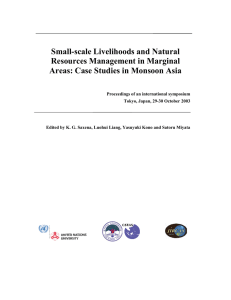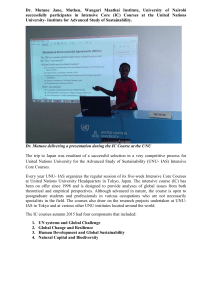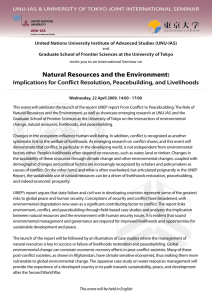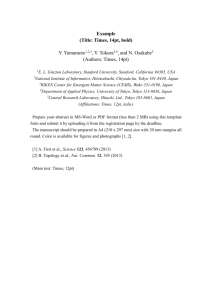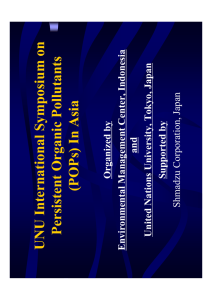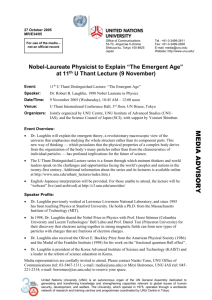Document 11871249
advertisement
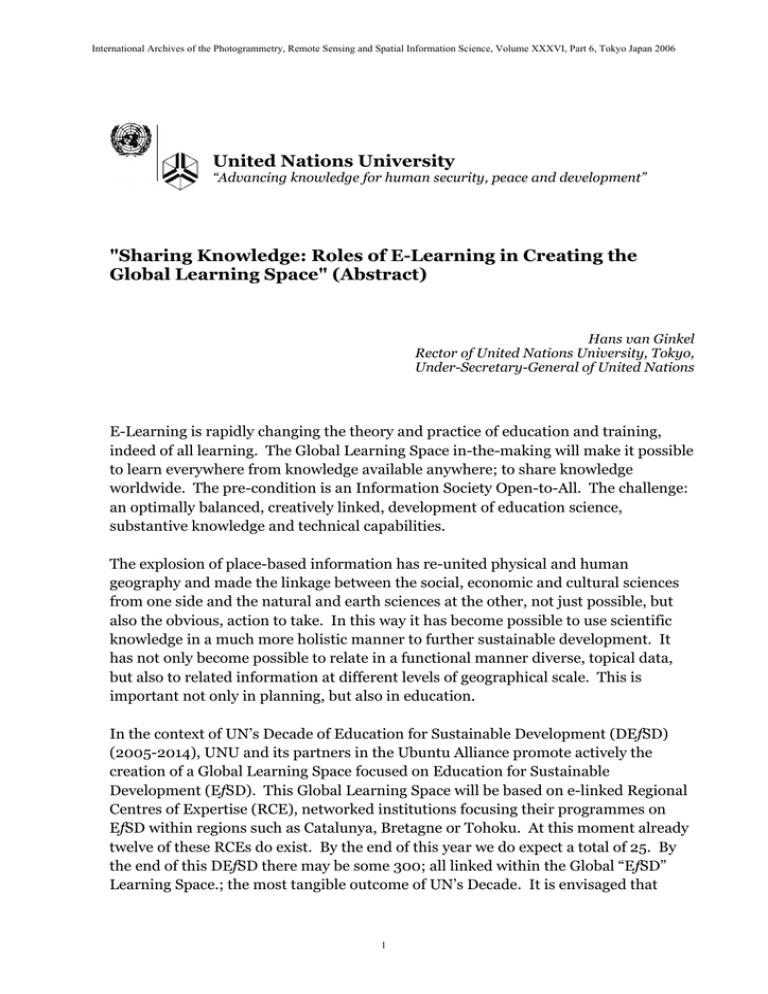
International Archives of the Photogrammetry, Remote Sensing and Spatial Information Science, Volume XXXVI, Part 6, Tokyo Japan 2006 United Nations University “Advancing knowledge for human security, peace and development” "Sharing Knowledge: Roles of E-Learning in Creating the Global Learning Space" (Abstract) Hans van Ginkel Rector of United Nations University, Tokyo, Under-Secretary-General of United Nations E-Learning is rapidly changing the theory and practice of education and training, indeed of all learning. The Global Learning Space in-the-making will make it possible to learn everywhere from knowledge available anywhere; to share knowledge worldwide. The pre-condition is an Information Society Open-to-All. The challenge: an optimally balanced, creatively linked, development of education science, substantive knowledge and technical capabilities. The explosion of place-based information has re-united physical and human geography and made the linkage between the social, economic and cultural sciences from one side and the natural and earth sciences at the other, not just possible, but also the obvious, action to take. In this way it has become possible to use scientific knowledge in a much more holistic manner to further sustainable development. It has not only become possible to relate in a functional manner diverse, topical data, but also to related information at different levels of geographical scale. This is important not only in planning, but also in education. In the context of UN’s Decade of Education for Sustainable Development (DEfSD) (2005-2014), UNU and its partners in the Ubuntu Alliance promote actively the creation of a Global Learning Space focused on Education for Sustainable Development (EfSD). This Global Learning Space will be based on e-linked Regional Centres of Expertise (RCE), networked institutions focusing their programmes on EfSD within regions such as Catalunya, Bretagne or Tohoku. At this moment already twelve of these RCEs do exist. By the end of this year we do expect a total of 25. By the end of this DEfSD there may be some 300; all linked within the Global “EfSD” Learning Space.; the most tangible outcome of UN’s Decade. It is envisaged that 1 International Archives of the Photogrammetry, Remote Sensing and Spatial Information Science, Volume XXXVI, Part 6, Tokyo Japan 2006 UN’s year for the Planet Earth (2008) will, among others, give a strong boost to this Global Learning Space for EfSD. UNU-IAS (Yokohama) will host the Global Service Centre of the Global Learning Space for EfSD. Worldwide, many activities are being undertaken to achieve these goals, both by partners of the Ubuntu Alliance and others. Within UNU the UNU-IAS, aided by the UNU-On-Line-Learning Initiative (UNU-OLL), located in the Media Studio, created with Keio University and CISCO Systems, is responsible for these activities. Different pilot-projects and activities have been developed to size up opportunities and challenges: among others the Global Virtual University (UNU-GVU, with support of UNEP and the Norwegian Government), the Asia Pacific Initiative and the e-Cases project. The Global Service Centre at UNU-IAS will be linked to the Higher Education for Sustainability Resource Project, as well as to IUCN’s (World Conservation Union’s) Resource Centre. Connectivity and creativity will make it possible to link all good initiatives in creating the Global Learning Space, which will truly shape the new reality for learning: worldwide sharing of knowledge. United Nations University Headquarters 53-70, Jingumae 5-chome Shibuya-ku, Tokyo 150-8925 Japan Tel. (03) 3499-2811 / Fax (03) 3499-2828 E-mail mbox@hq.unu 2
